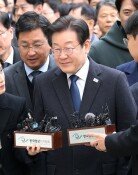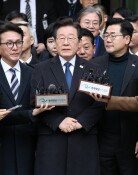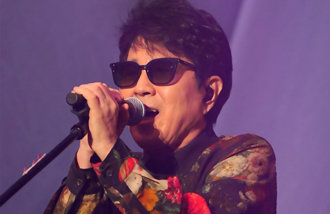This is not Lee Jay-myung's victory
This is not Lee Jay-myung's victory
Posted April. 16, 2024 07:56,
Updated April. 16, 2024 07:56
Democratic Party leader Lee Jae-myung, having secured a substantial majority with 175 seats, may view this as a validation of his leadership, considering the challenging nomination process marked by 'screaming demise' and 'defection relay.' However, it's crucial to note that this outcome is not solely a defeat for the ruling party but also a significant victory for Lee Jae-myung.
The general elections, strategically scheduled during the third year of the government's term, naturally favored the opposition. They had a plethora of issues to attribute to the ruling party, from the 'gold apple price' and 'medical crisis' to the 'green onion controversy.' In contrast, the ruling party’s strategy of blaming the opposition only served to highlight their own failures, thereby underscoring their inefficacy.
This context paints Han Dong-hoon, the interim leader of the People Power Party, who led the campaign focusing solely on the 'Judgmenent of Lee Jae-myung & Jo Guk, as a political novice. Despite garnering support in the presidential race, their administration failed to deliver over two years, now irresponsibly requesting the public to assess Lee Jae-myung and Jo Guk again. The result was a dismal defeat, a reflection of Yoon Suk Yeol's incompetence and Han Dong-hoon's ineptitude.
Lee Jae-myung also significantly misjudged several aspects. Notably, the defeat in Seoul's Dongjak-B district was severe. Lee actively campaigned in Dongjak-B, where Na Kyung-won, a seasoned politician from the People Power Party with four-term records, faced off against Ryu Sam-young, a political newcomer from the Democratic Party. The election, effectively a face-off between Na Kyung-won and Lee Jae-myung, tilted decisively when Lee derogatorily referred to Na as 'Nabe' (combining her name with that of former Japanese Prime Minister Shinzo Abe), sparking a gender bias controversy. Na's response, proclaiming herself "the last barrier and the ultimate frontline," secured her a strategic win.
Additional unexpected defeats occurred in districts such as Seoul's Dobong-A and Mapo-A. Dobong-A has been a Democratic stronghold since 1988, except for one instance in 2008. Mapo-A, cultivated over 20 years by Congressman Roh Woong-rae and his son, also fell. In Dobong-A, the People Power Party's Kim Jae-seop overcame An Gwi-ryong, who campaigned under the slogan 'Lee Jae-myung over Cha Eun-woo.' In Mapo-A, Lee Ji-eun, a recruit branded by Lee Jae-myung, lost to Jo Jeong-hoon, a former Together Citizens' Party member.
The loss in Gyeonggi's Hwaseong-B, a district held by the Democratic Party since 2012, further underscores the failures in Lee's nomination strategy. Democratic candidate Gong Young-woon, closely associated with Lee and embroiled in a 'daddy’s chance' controversy, was defeated by the New Reform Party's Lee Jun-seok. This surprising victory for a third-party candidate in a three-way race highlights the Democratic Party's flawed nominations and poor campaign strategies.
Rep. Park Yong-jin of the non-Lee Jae-myung faction commented in a March 13 interview, a month before the general elections, that victory would allow the leader to claim his choices were justified. However, he countered, "The public is not foolish. They do not believe that a good outcome can compensate for a bad process. Memories of the process are distinct, and the process must be evaluated on its own merits." Despite losing the last presidential election, the Democratic Party has neither reflected on nor evaluated Lee Jae-myung's candidacy. The evaluation of this general election's results remains to be seen.







